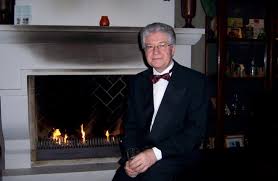About
Oleg Plotnikov has many talents: composer, arranger, teacher, pianist and conductor. With his excellent education in music and enormous experience he masters all styles in music-from classical to jazz and pleases the public with his piano playing.
Born in Chelyabinsk (Russia).
Received a higher musical education. Studied playing the violin, piano, theory of music, composition, conducting. He wrote music in different genres and styles for various instruments, bands and orchestras, music for theater and TV productions. His works and arrangements were awarded prizes at competitions and festivals in different countries.
In 1992 he moved to the Netherlands with his family, where he continued his artistic career. As well-known virtuoso jazz pianist and the leader of Uralsky Dixiland band-Uralsky All Stars. He gave concerts in various countries of Europe, America, Asia end Africa.
The famous «TIMELESS» records label released a number of CD’s of Oleg Plotnikov.
The combination of active composing and teaching has led to new works for piano, violin, cello, clarinet, vocal, Jazz Big Band - for beginners to professionals.
The collection «Homage», released in 2019, received a great recognition.
In 2019, the works of O.Plotnikov were included in the program of the International Piano Competition «Music of the Immortal and Living Composers» held at Carnegie Hall in New York.
In 2020 a collection of piano pieces by Oleg Plotnikov «Planets» was released, It uses a modern musical language.
Among the last works of the composer, one can mention the music for the Ballet «Snowflake and Flower», 3 parts Concerto for Clarinet, variations on the theme of two preludes by A.Skriabin.

